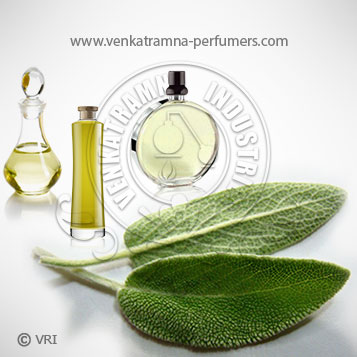
| Botanical Name | Salvia officinalis |
| Common Name | Sage oil, Salvia Officinalis, Salvia Sclarea, Clary Sage. |
| Country of Origin | Dalmatia, Turkey, France, Italy, Greece, China |
| Solubility | Insoluble in water, soluble in alcohol and oils |
| Specific Gravity | 0.9117 @ 72°F |
| Optical Rotation | 9.15 |
| Refrective Index | 1.4669 @ 72°F |
| PlantPart | Leaves |
| Bland With | Clary sage, geranium, ginger, lavender, neroli, orange, rosemary, tea tree and vetiver. |
| CAS No | 8022-56-8 |
| Flash Point | 84 °C |
| Extraction Method | Steam Distilled |
We are offering Sage Essential Oil, extracted from herbs that are considered sacred by the ancient Egyptians. Supposed to be a cure for infertility in women, the herb has long been popular among the Chinese because of its medicinal properties. The oil has a distinct spicy fragrance and is distilled from dried leaves of the herbs.
The Chinese believed Sage cured sterility and the Romans believed it cured just about everything. The Latin word 'salvare' means 'heal' or 'save’. During the middle Ages, Sage was a popular ingredient of many nerve tonics and the actual herb was used to clean gums. S. officinalis (sage, garden sage, or common sage) is a perennial, evergreen subshrub, with woody stems, grayish leaves, and blue to purplish flowers. It is native to the Mediterranean region, being currently cultivated in various countries. Sage is one of the oldest medicinal plants, and the etymology of the Latin name suggests its healing properties, with Salvia deriving from the Latin verb salvare = to save or to cure, and officinalis also means medicinal.
Color : Yellowish to Greenish liquid @22°C with Warm Camphorous and thujone like odor,
Aroma : Organic Sage Essential Oil has a spicy, sharp, and very herbaceous scent. It is referred to as having a penetrating and powerful aroma.
1,8-cineole (Accounting for 71.6% of the oil), Acetylcholine esterase, camphor (24.95%).
The Sage Essential Oil offered by us is widely used in the pharmaceutical industry because of its diverse medicinal properties which makes it anti microbial, anti fungal, anti oxidant, antiseptic, anti inflammatory, anti spasmodic and anti bacterial. Moreover, it is also choleretic, cicatrisant, depurative, a very effective digestive, disinfectant, laxative as well as stimulant. Salvia sp. has also been used for a long time in folk medicine as medication against fever, rheumatism, perspiration, sexual debility, and in the treatment of chronic bronchitis, as well as mental and nervous diseases. Salvia officinalis L. (Lamiaceae) is a Mediterranean species, naturalized in many countries. In Jordan, it is used in traditional medicine as antiseptic, antiscabies, antisyphilitic, and anti-inflammatory, being frequently used against skin diseases.